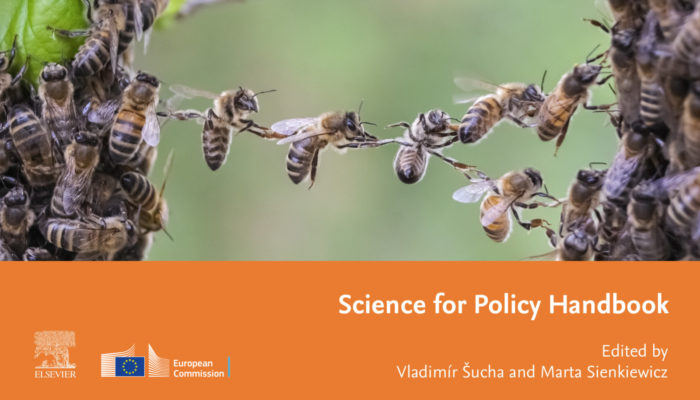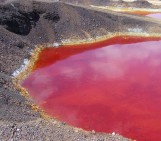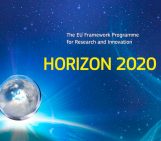
Last year, the European Commission’s Joint Research Centre (JRC) published their Science for Policy Handbook that provides advice on how to bring science to the attention of policymakers. The Handbook is divided into 19 Chapters covering different areas of science for policy as well as some of the challenges that scientists face when engaging with policy and potential solutions. This month’s GeoPolicy blog posts gives you some insights from Chapter 5 of the Handbook: Achieving Policy Impact.
Science can play an important role in the policymaking process by helping decision-makers more accurately assess the benefits and potential consequences of different policy pathways. However, for science to have an impact in the policymaking process, it must first be communicated and understood. Although this may sound simple, applying your research to a political context and connecting with policymakers so that they can comprehend and subsequently use your research, can be a confusing process! Below are a few of the practices recommended in the JRC’s Science for Policy Handbook to walk you through this process.
Tips for scientists wanting to achieve policy impact
Increase your understanding about the different policy actors and their role in the policymaking process
There are a large number of actors involved in the policymaking process who have different roles, priorities, interests, attention spans, and knowledge needs. Scientists and scientific organisations need to be aware of these different actors to ensure that they provide relevant information where it is most needed and therefore most likely to be used. Some examples of policy actors and the roles they fulfil include:
-
-
- The decision-maker: the person or the body empowered to take the policy decision.
- The policymaker: the person or the body assisting the decision-maker in reaching a decision by providing policy analysis and generating policy options.
- The scientific expert: the person or the body providing scientific support and advice to the policymaker and the decision-maker, giving the best evidence on which to base the solutions.
- The stakeholders: people or organisations that affect or are affected by a decision and have an interest in its outcome.
- The citizens: everyone that is affected by the implementation of the decisions and the outcomes.
-
Understanding and communicating the role that you, as a scientific expert or scientific organisation, are filling is also vital. The JRC recommends that scientists take on the role of honest broker by not favouring any policy direction upfront and providing relevant, contextualised scientific information that allows policymakers to understand the potential benefits and consequences of the different policy options.
Practice mindful communication and learn to speak the same language
While the quality of science is indisputably a precondition for impact, there is no guarantee that excellent science will attract the consideration of policymakers by itself. Communicating complex topics in a way that can be understood without over-simplification is a challenging but essential component of sharing your research with policymakers. Understanding who your audience is, what they already know about the topic, what their motivations are, and what they are hoping to learn, will help you to determine what to focus on and how to explain it. Framing your message using these key points will ensure that the most important information is heard, understood and remembered by your target audience.
Scientists engaging with policy should also try to speak the same language as the policymakers that they are working with. Eliminating technical jargon while using a constructive (rather than condescending or offensive) tone can help build trust and a rapport. Being concise and eliminating unnecessary details will also allow the extremely busy policymakers that you are communicating with to assimilate and use the information you’re giving them.
Gather support from other stakeholders
Engaging non-scientific stakeholders who are also interested in the topic can help amplify the message that you are hoping to share with policymakers and raise visibility. A third-party endorsement of your expertise can also help boost your credibility, particularly if it comes from stakeholders with a different perspective or who are working in another sector.
Gather intelligence, build relationships & look for “windows of opportunity”
To have impact, scientists should plan their policy engagement from the beginning of a research project. This includes gathering information about the different facets of the policy debates and drivers as well as understanding which policy fields and contexts your research is relevant for. Although scientists often work on relatively narrow topics, their knowledge may be relevant for multiple policy fields and situations.
Building relationships with policymakers and other stakeholders working in the same area can help you put the pieces together. These relationships can be particularly useful in deciphering where the important conversations are happening, who is involved in them, and how they drive policies. These relationships can also put you in the right place to offer scientific advice when the need arises, enable you to interpret the type of scientific support needed at a given moment, and empower you to more effectively use windows of opportunity.
Of course, gathering ‘policy intelligence’ is time consuming and not always possible for individual scientists. Some things that may help get a quick overview include: horizon scanning, monitoring media sites for relevant policy news, and following policymakers working on topics relevant to your research on social media.
More information
If you’re interested in learning more about how you can effectively engage with the policymaking process and achieve policy impact, join the #vEGU21 Short Course, SC3.4: Your Handbook to Science for Policy on Tuesday 27 April, 10:00–11:00 (CEST). This Short Course will be hosted by one of Handbook’s editors, Marta Sienkiewicz and JRC’s impact and training expert, Lene Topp. The JRC’s Science for Policy Handbook is available free online and will give you a sneak peek into some of this session’s content!
We also recommend that you check out the JRC’s infographic – 10 tips for researchers on “How to achieve impact on policy?”


